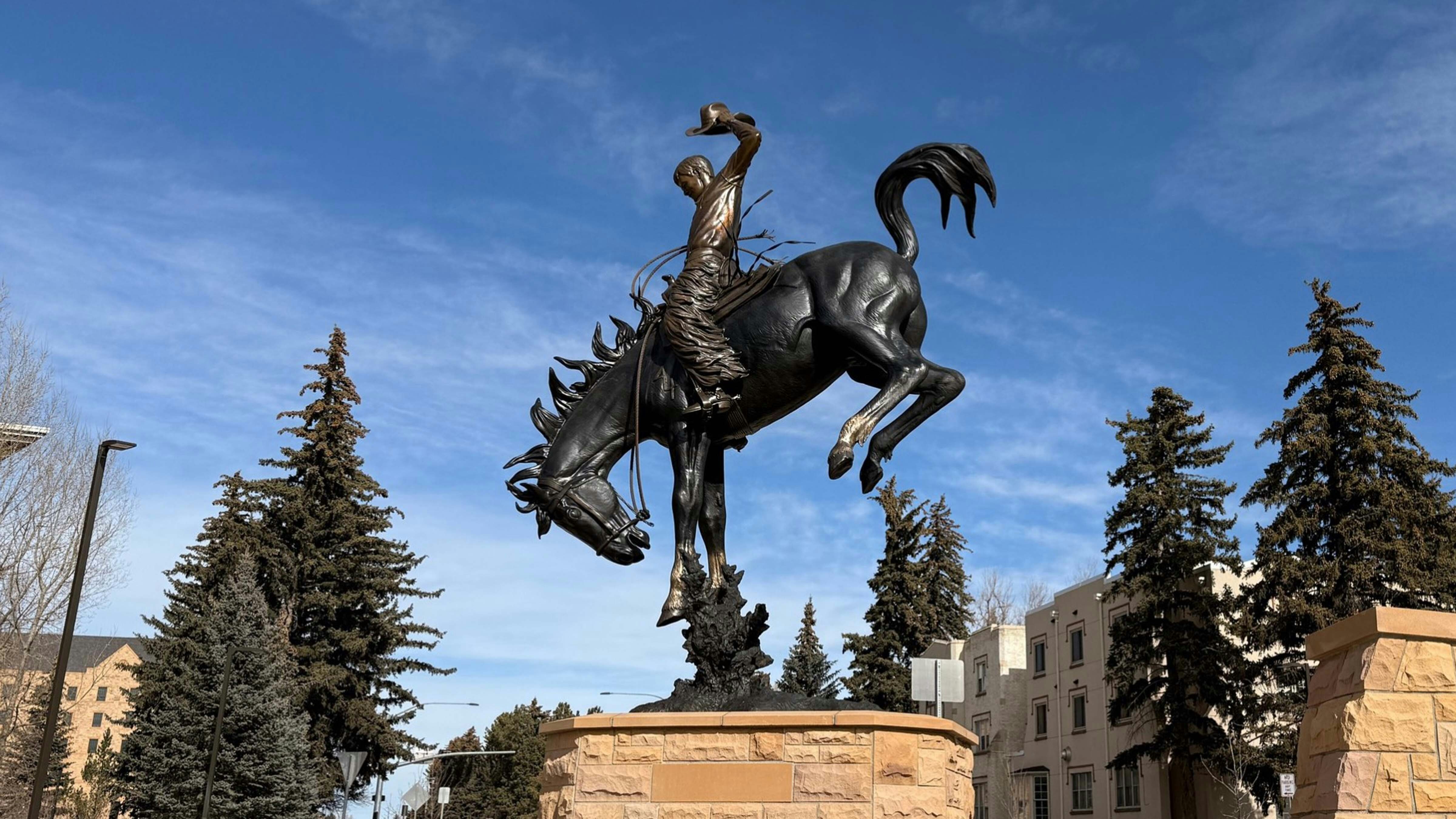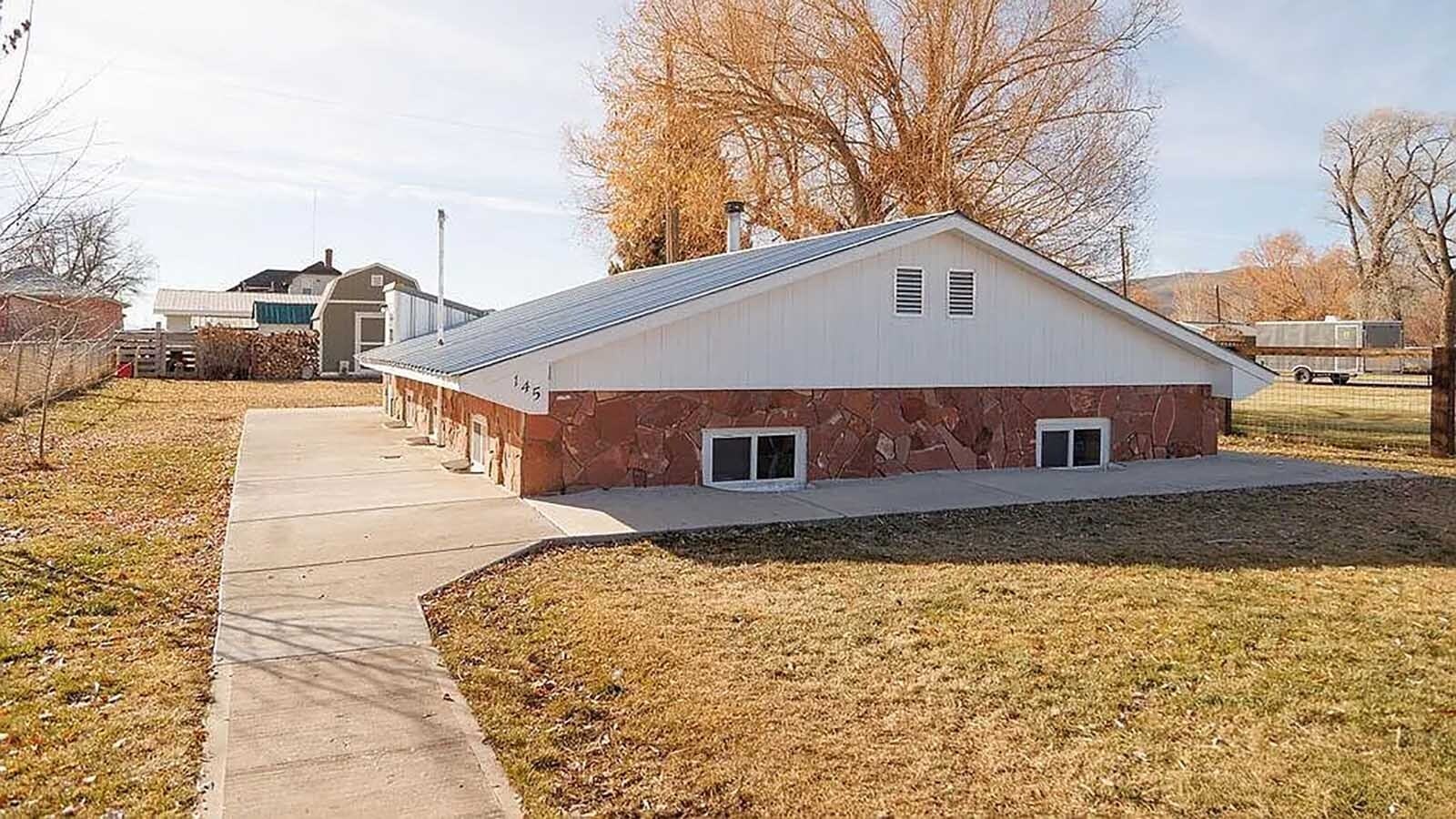Ann Hauge will tell you up front she’s more New York than Wyoming, though she is a third-generation owner of the Snake River Ranch near Wilson, which lays claim to being the largest deeded ranch in the Jackson Hole area.
But she’s even more Haiti than she is New York, by far.
Forty-some years ago, Hauge had the chance to go to Haiti just after graduating from Harvard with a law degree. It wasn’t supposed to be a lifelong thing, but Haiti has a way of burrowing under the skin, down deep into a person’s soul, she said.
Once that happens, it will never quite let you go, no matter how many times you return home to enjoy a little respite on your family’s Wyoming ranch, she said.
Although she loves Haiti, it does have real challenges. That makes Wyoming a true and much-needed respite.
“Let me tell you, it is a pleasure to be in a place where there is public order,” Hauge said. “You don’t appreciate it until you don’t have it.”
Haiti, though, does have its charms.
It feeds her pioneer spirit, and it’s allowed her to pursue opportunities she could never have had a chance to do in America. That’s what ultimately keeps her going back to Haiti, a different kind of frontier.
“We were raised to be useful,” Hauge said. “Haiti is a place where somebody like me, who has a kind of generalist education, can find ways to be useful that are profoundly interesting.”
Things like building the first port in the last 50 years in the southern peninsula of Haiti.
“Who would ever let me build a port in the U.S.?” Hauge said. “Forget it. I have no relevant qualifications.”
But this year, she and her Haitian business partner did just that. Their port is bringing cement, rice and sugar into a country that desperately needs it, along with every economic opportunity for prosperity that it can get.
“People said it wasn’t possible,” Hauge said. “Well, we’re doing it anyhow.”

Born-Again Entrepreneur
Hauge’s triumph was 28 years in the making from start to finish. The tale of her Haiti connection goes back even further than that.
“I had worked part-time for a legal services clinic that was affiliated with the law school,” she said. “And I had immigration and political asylum clients, including one person from Haiti. That’s how the Haiti connection started.”
She’d begun learning French in the fourth grade, which gave her a huge leg up on understanding Haiti’s native language, Creole. That’s a different language that developed between French settlers and the inhabitants of the island during colonial times.
By the time Hauge graduated, she had decided she really wanted to work in third-world countries. But she didn’t want to be too far from her aging mother and America.
“Haiti was as deep into the third world as you can get and still be physically close,” Hauge said. “I would be three and a half hours from my mother in New York if she needed anything.”
Initially, Hauge worked for the U.S. Agency for International Development, but she became quickly disillusioned with its approach.
“I left them in June of 1984 to be independent and joined a small, Haitian company that was importing seed and fertilizer,” she said. “Their way of doing development just didn’t make sense to me. So, I became a born-again, shall we say entrepreneur, because it seemed to me more could be accomplished in Haiti with that.”
The seed and fertilizer business also took over a closed vetiver oil facility and got it running again.
“Vetiver oil is extracted by steam distillation from the roots of the vetiver plant and is used as a natural ingredient, a ‘woodsy’ note, in perfumery,” Hauge said. “Ours is now the largest such plant in the world.”

Land Of Hidden Riches
The success of the Vetiver plant and the seed and fertilizer businesses were intoxicating, creating a certain optimism for southern Haiti, where the businesses were located.
“It was just such a tremendous kind of feeling,” she recalled. “So many things seemed possible. So, my business partner and I, we said to ourselves, ‘What would it take to make Southern Haiti a place where people could live and work without having to migrate?’ And we said, in our blessed ignorance, ‘Not too much. An international port, an international airport, telecommunications, some roads and potable water.”
They knew the government wasn’t going to build a new port on the southern peninsula. So that would have to be up to them, they decided.
“The Haitian government does not build new ports in new locations because it is influenced by the people with sunk investments near their historic ports in Haiti,” Hauge said. “And most of the historic ports in Haiti, and this is true of most historic ports in the U.S. as well, are near the mouths of rivers.”
Because of that, silt builds up in the port, decreasing the depth of water available for the draft of bigger ships.
“Because we were private people, we could take a fresh view of what makes sense for the next 200 years,” Hauge said. “And we said we need to find a location that has natural deep water, where it will not silt up or is likely to silt up less, that is reasonably close to the major city of the south.”
The first problem they faced was unexpected. It was just convincing the Danish economists they hired that there was more to southern Haiti than met their eye.
“The feasibility study was supposed to take six months, but took two years, because the Danish economists who came to Haiti said we don’t see much of an economy here,” she said. “It was just as if people came to Wyoming and looked around and they don’t necessarily realize the richness of the place and what it can produce.”
Next Problem: Keeping Gangs Out Of The South
The feasibility study was really the easy part though. Getting a port built in Haiti isn’t just an expensive engineering feat. It requires navigating a country with Byzantian layers of politics, mixed in with gangs and the occasional earthquake too.
Haiti is a country where grain can sometimes sit in a port far longer than it needs to simply because the longer it sits there, the more fees someone will collect.
It is a place where missionary groups have tried and failed to build things like earthquake resistant homes for people disabled in the 2010 earthquake, because the mayor of the community where those homes were being built was selling the land out from under them. That happened in spite of obtaining all the necessary legal paperwork, including national approvals for their project.
It is also a place where orphanages find themselves perpetually homeless, because every time they build a new place, someone with a bigger gun shows up and says this place is now mine.
Those kinds of dynamics have made it hard for many groups to help in Haiti. And it is because of such dynamics that Hauge and her business partner realized that their port, to survive, had to truly be the people’s port. The way they did that was to sell shares in the port project to the public at large.
“In Haiti, one of the most important things is your connections with people,” Hauge said. “It’s much more important than the money. Because people can find out who you are, what kind of reputation you have, and they don’t go through banks. They go through personal relationships.”
With the ups and downs of the Haitian government, sometimes left, sometimes right, sometimes something in between, having shareholders who come from all different political spectrums helped insulate it from turmoil.
“We’ve had people who sold pigs and cattle to buy shares in our port,” Hauge said. “I will tell you when you borrow money from people you feel a certain obligation to repay them. But when you have equity from people who sold pigs and cattle to invest, that becomes a sacred obligation to deliver what you promised.”

Keeping The Port Honest
Things haven’t been without their moments of drama. Before the port was officially opened, for example, officials blocked a shipment of cement, being carried by six or seven ships.
“The population had to block the highway for four or five days to get them to change their minds,” Hauge said.
The groundswell of support wasn’t just because of the corporate structure, though, where many people have contributed to the cause. It was also the good people had already seen the project doing for their community, long before it was finished.
“The fact we had built an access road that enabled them, when cholera came after (the earthquake), people were able to drive, get their family member out by moto to go to hospitals so they didn’t die,” Hauge said. “As a result, that contribution, even though the port had not started, meant a lot to people.”
Each ship that unloads, meanwhile, involves around 100 people. That work helps them support their families and gain independence.
Keeping custom collections honest is the next challenge facing the port.
Ports on the northern coast of Haiti have existed for 400 to 500 years, yet the brand-new port in the southern peninsula of Haiti is contributing more to the treasury right now.
“And that’s very possibly because we don’t have a tradition of corruption,” Hauge said.
Things will get much more complicated once the new port starts receiving vehicles, Hauge believes. That has her eyeing a solar power base for the area, which she believes could help create more cottage industries in her corner of the Haiti world.
“Our port is off the grid anyhow,” she said. “The public power system in Haiti is down to under 350 megawatts, which is only a fraction of what you have in a corner of Wyoming. Lots of people here already have generators. They have solar panels, they have inverters and they have batteries.”
Creating a solar base would give people different opportunities for prosperity than future gang membership, Hauge hopes.
“In order for the port to have a future that is not gang-dominated, we’re going to have to think about how to keep gangs out of the south,” she said. “So, as a self-protection activity, we need to try to figure out how to start good opportunities for young people.”
These are the kind of complex problems that have kept Hauge’s interest for the last four decades or so. They make her feel a bit more like a Wyoming pioneer of old.
“I guess I have a certain amount of frontier mentality,” she said. “This is a different kind of frontier. It’s more interesting to create things that need to be created, rather than just be a consumer and make money to consume and so forth.”
Renée Jean can be reached at renee@cowboystatedaily.com.






